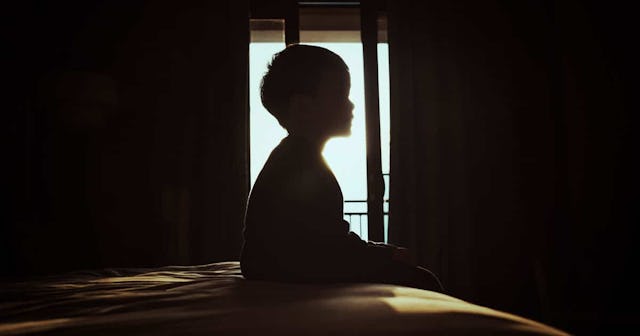I Try So Hard Not To Be The Parents I Had

I am 41 years old. While not old, I feel like plenty of years should have passed between now and my childhood to still be dealing with shit that happened 20 and 30 years ago. But even through my frustration, I know this isn’t true. Self-awareness, education, and therapy have helped me understand the way my brain was formed and how every aspect of my existence has been impacted by years of abuse and severe sexual trauma.
I can’t think my way out of the chemical connections in my brain and the emotions that bubble up when an old wound is exposed. I can, however, understand them, adjust my words, and change my actions to take care of myself and form authentic relationships. I have done this with mixed results, but will continue to put in the effort to undo what was never supposed to be my life’s work. Putting distance between the present and my childhood means I have had to put distance between the people who raised me, too. Out of good conscience, a repulsion at the thought of being like my parents, and a desire to be better and different for myself and my kids, I have broken many toxic cycles. However, it hasn’t been without backlash and pain.
Doing what’s best for me has not been free of negative impact. Cutting off contact with my abusive parents who turned into toxic relationships should have made my life lighter and easier. The absence of complicit extended family members should have given me more freedom and confidence. Instead, removing abusers from my life who I depended on, who I loved and who said loved me, created a mind fuck. Why would someone who loves me hurt me? And if I was hurting, why did I go to them for support and comfort? And why can’t I shake this guilt as if I were the one who did something wrong? Because none of us seemed to know any better until I finally did.
I knew my ongoing hurt even after the physical and sexual abuse ended was a direct result of the abuse itself, but it was also in the interactions with people who seemed fine with our shared memories and removed from my pain. It was as if time really could heal all wounds—for them. Their ability to move on made me wonder if I was wrong. Having kids of my own helped me realize I wasn’t.
Cognitively, I know I did what I needed to do and am healthier for it, but I still feel pangs of guilt for walking away from people who wanted me to stay and to forgive all sins. They wanted relief from accountability and access to the growing joy created by the existence of my children. In my survivor’s guilt and the agony of knowing I hurt another person by ending contact, I misdirect that guilt onto what I think my own parental failings are on any given day. I wonder if I yelled too much. Did I work too many hours? Say no too often? Do my children feel loved? Do they feel seen? What if they don’t feel my love? What if I missed something?
When I snuggle with my kids at bedtime and they wrap their arms around me or wiggle away and ask for space, I know they are safe. The physical and emotional nets of safety I have provided for my kids are visible in their outbursts and laughter throughout the day and in their slow and soft breathing as they drift off to sleep beside me each night. It’s visible in their ability to push me away in their frustration when they push boundaries. The work I have done to be different and to provide a better environment for my kids than the one I knew is evident in our talks about consent, tricky people, and privacy. It’s there in heated moments when we yell, swear, and sometimes throw things. Because while we are angry with one another, we are not out to hurt each other. We express our feelings, but we don’t use them as weapons. We are allowed to express our feelings.
I still mourn the relationships I don’t have and the grandparents my kids don’t know. And when I feel that intense sadness, I imagine their pain of missing me. Is it better to be missed and know I am causing hurt or to be let go of completely? Those feelings shift to missing my own children before they have even grown and left the house. Will they let me go? Will my children come back? I question if I will ever welcome family members into my life again. These thoughts and fears are often right on the surface of my interactions with my own children, with the hope I am doing things differently.
I know I am, but will it be enough? Have I sufficiently healed to trust that I am the parent my kids need? On most days I think I have, but on the hard days, it’s easy to forget that I have already broken the cycle. Being the change still impacts my mental health and how I see myself as a parent. I am constantly holding several, often opposite, emotions at once because detoxing is necessary, even if it’s painful. I am far from a perfect parent, but I am a probably a better one than I give myself credit for. Someone once told me that the addition of these intentions and thoughtfulness has created space for me to develop healthy and long-lasting relationships with my children. That would be a more than ample reward for all of us.
This article was originally published on